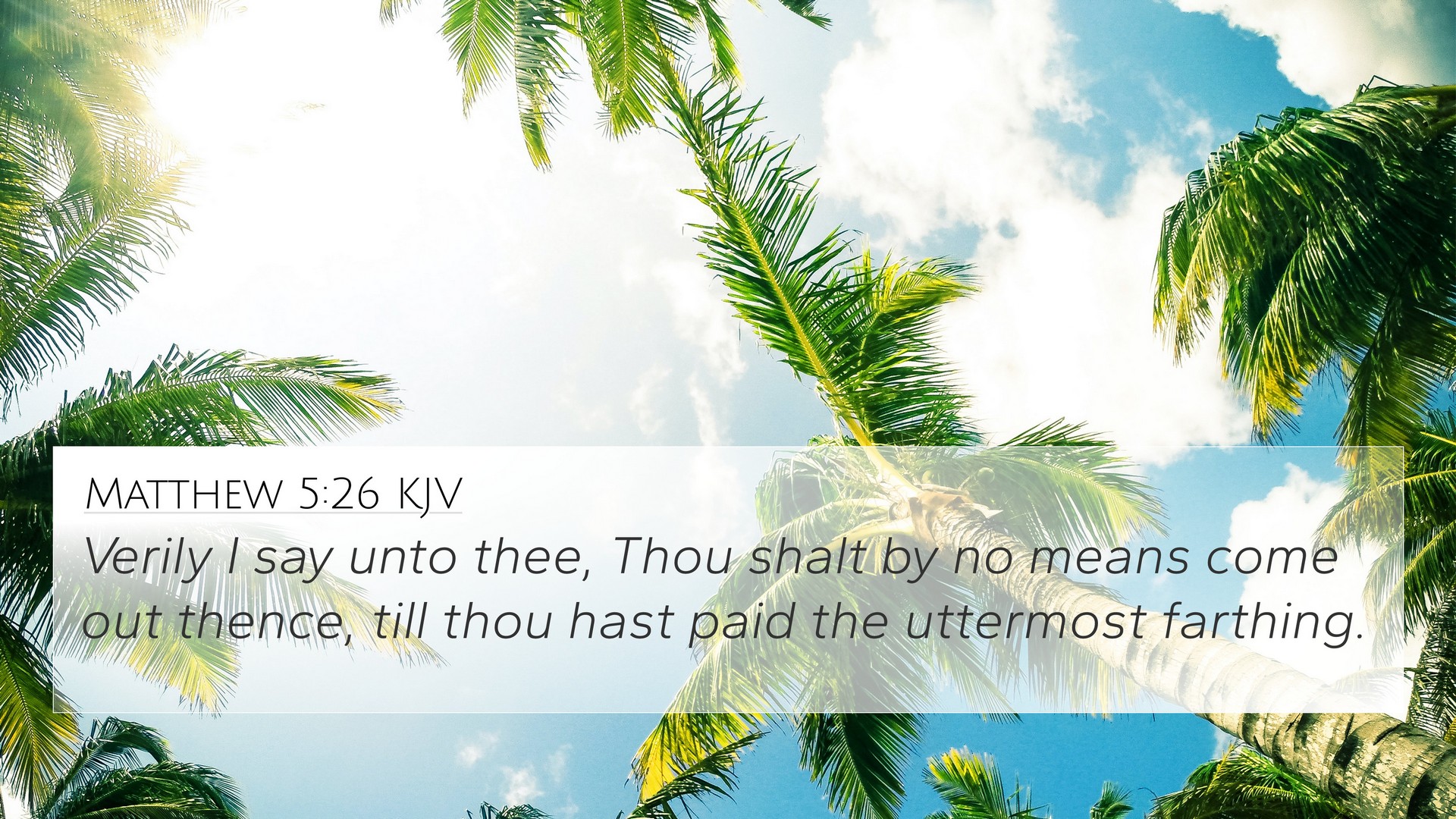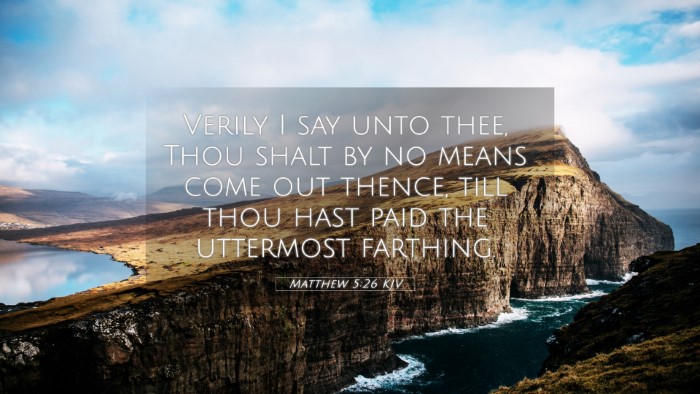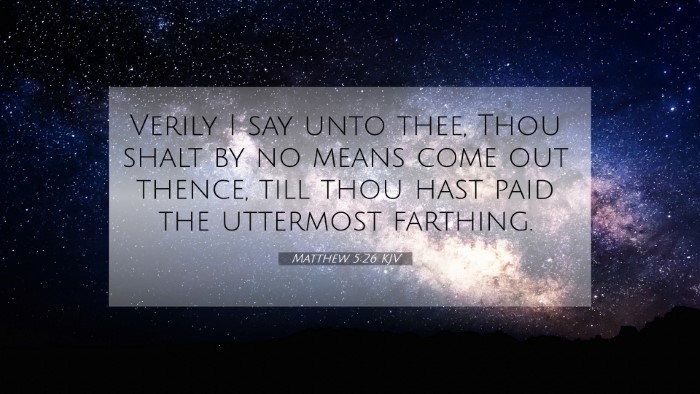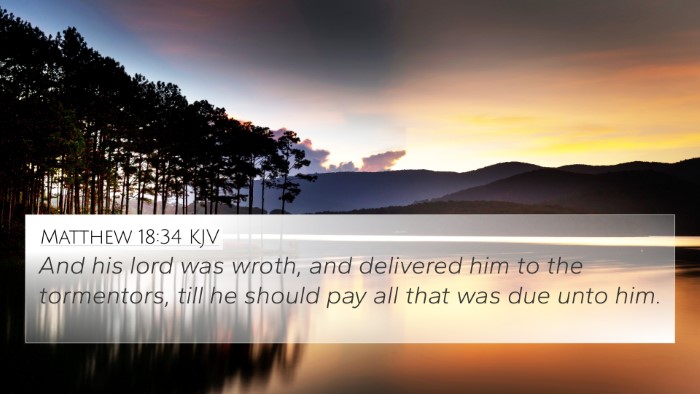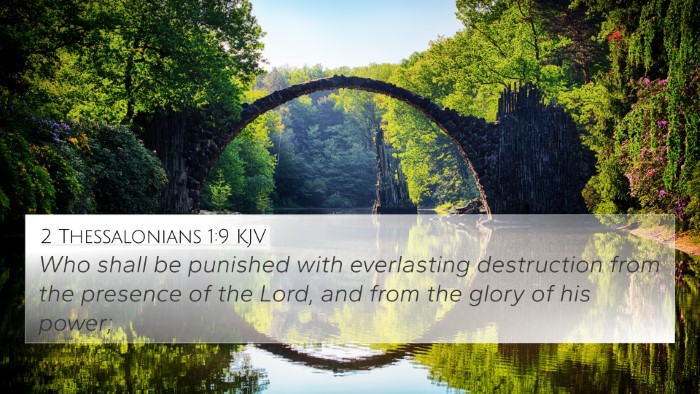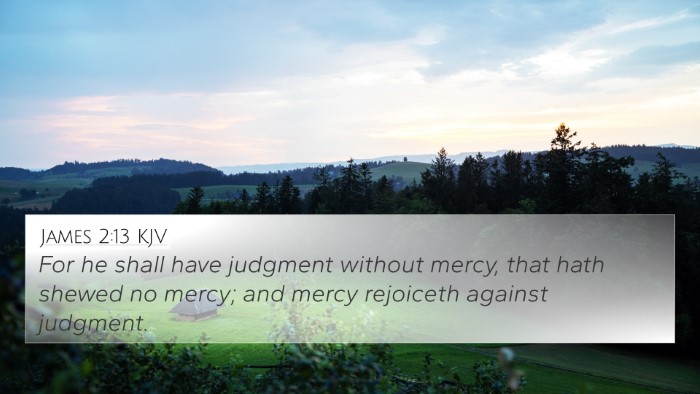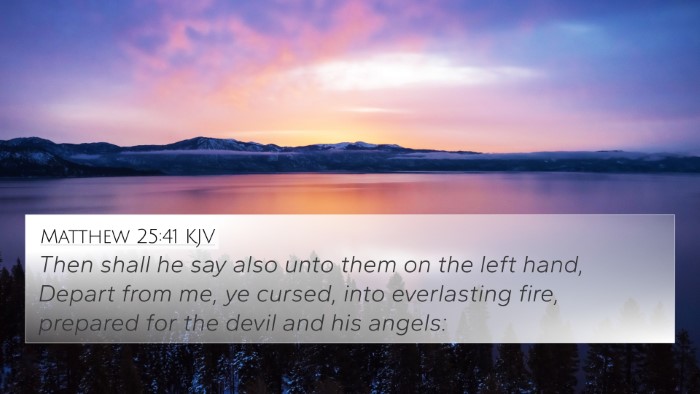Understanding Matthew 5:26
Verse: Matthew 5:26 states: "Verily I say unto thee, Thou shalt by no means come out thence, till thou hast paid the uttermost farthing." This verse emphasizes the seriousness of our obligations and the consequences of our actions.
Contextual Summary
This verse is part of the Sermon on the Mount, where Jesus teaches on various moral and ethical standards. It specifically reflects on the importance of resolving disputes and the implications of being "in debt" not just financially but relationally as well.
Commentary Insights
-
Matthew Henry's Commentary
Henry observes that Jesus illustrates the perils of unresolved conflicts, suggesting that one might find themselves ensnared in a situation from which they cannot easily escape. The language of 'paying the uttermost farthing' indicates that every small debt must be settled, emphasizing diligence in resolving issues promptly.
-
Albert Barnes' Commentary
Barnes interprets this verse as a warning about the permanence of unresolved grievances. He suggests that the debtor must face the consequences and implies that justice must be satisfied. He stresses the moral duty individuals have to settle debts and resolve conflicts amicably to avoid further complications.
-
Adam Clarke's Commentary
Clarke points out the metaphorical implications of being imprisoned for one’s debts. He relates this concept to spiritual indebtedness, stating that unresolved sin also requires restitution before one can achieve true freedom in Christ. This verse serves as a reminder of the necessity to address our wrongs in both earthly and spiritual realms.
Cross-References
This verse connects to various other scriptures that highlight themes of debt, judgment, and reconciliation:
- Luke 12:58-59: Jesus warns of the consequences of not settling disputes quickly.
- Matthew 6:12: Forgive us our debts, as we forgive our debtors—highlighting the necessity of forgiveness.
- Romans 14:10: We shall all stand before the judgment seat of Christ, reinforcing personal accountability.
- James 2:13: Mercy triumphs over judgment, indicating the importance of compassionate resolution.
- Ephesians 4:26-27: Do not let the sun go down on your anger; in essence, resolve conflicts promptly.
- Luke 16:5-7: The parable of the unjust steward illustrates the concept of settling debts and forgiveness.
- Proverbs 21:13: He who shuts his ear to the cry of the poor will also cry out and not be heard—emphasizing the moral obligation to respond to needs.
Thematic Connections
This verse can further be linked to overarching themes in scripture, such as:
- Restoration and Reconciliation: Biblical teachings emphasize the importance of restoring relationships and reconciling with others.
- Justice: The necessity for justice to be served is integral in biblical texts, signifying that debts, whether spiritual or physical, must be addressed.
- Accountability: Individuals are called to be accountable for their actions, which extends to interpersonal relationships.
Conclusion
Matthew 5:26 serves as a profound reminder of our obligations to one another, both in material and spiritual senses. Through a comprehensive understanding of this verse, aided by various public domain commentaries, believers can gain insights into the nature of sin, debt, and the essential call for reconciliation. It encourages us to reflect on our relationships and the importance of addressing our transgressions promptly and with diligence.
Additional Study Tools
For those seeking to deepen their understanding of scripture connections, consider utilizing:
- Bible Concordance: To find related passages based on themes or phrases.
- Bible Cross-Reference Guide: Helpful for identifying interconnections within the text.
- Cross-Reference Bible Study: A method that allows studying themes through linked verses.
